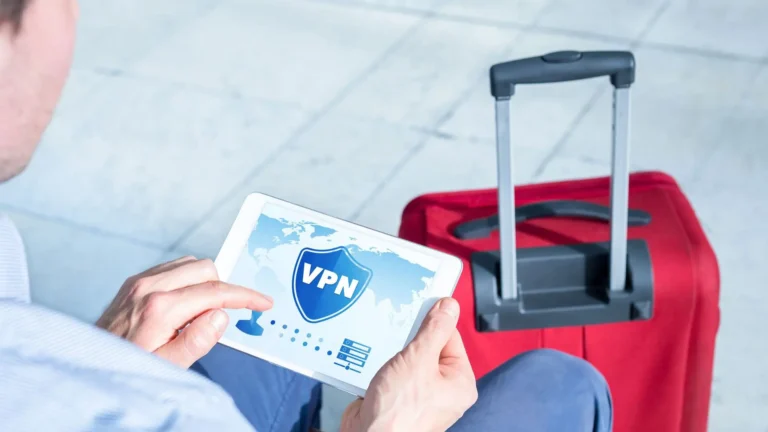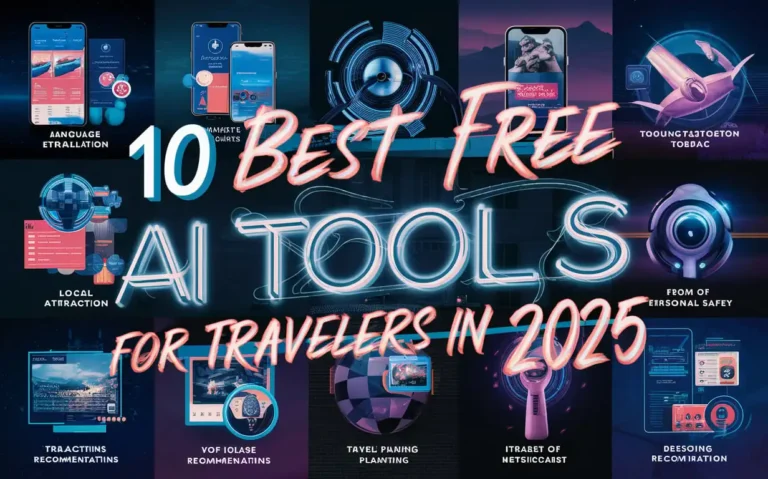
There’s something strange that happens when you first land in Morocco. Maybe it’s the desert air, or the call to prayer echoing somewhere in the distance.
Or maybe it’s just that overwhelming, slightly surreal feeling of being far from anything familiar.
Whatever it is… it hits you fast. And if you’re coming from the US, you’ll want to be ready for it — not in a rigid, itinerary-packed kind of way, but just… aware. Open. A little curious.
Things to Know Before Traveling to Morocco From USA

So, here’s a not-too-formal, slightly rambling collection of things to know before traveling to Morocco from USA. Think of it as advice from a friend who’s been there, stumbled a little, and figured out what they wish they’d known sooner.
1. Morocco’s a Muslim Country — And That Shapes A Lot
It’s easy to forget how much a country’s religion can influence daily life until you’re somewhere like Morocco. Yes, it’s an Islamic country. That means calls to prayer five times a day, modest dress expectations (especially for women), and a slower rhythm on Fridays.

You don’t need to dress in a full jilbab, but covering shoulders and knees is respectful. You’ll also find that things like alcohol aren’t as common or openly available.
It’s not banned, but let’s just say it’s not something you sip casually on a sunny patio — at least not outside major cities or larger hotels.
Pro Tip: Avoid scheduling long-haul transfers or key activities around early Friday afternoons — especially in conservative towns like Fes or Meknes.
2. The Currency Is Closed — So Don’t Try to Exchange It Back Home

The Moroccan dirham (MAD) is a closed currency, which basically means you can’t buy it in the US before you leave. You’ll have to get it when you arrive — at the airport, banks, or trusted exchange points.
And here’s the thing: Always ask for smaller bills if you can. Dirham bills in large denominations (like 200s) are weirdly hard to break in smaller shops or taxis. It’s awkward standing there while a shop owner digs through drawers or calls over a buddy for change.
Pro Tip: Keep 1–10 dirham coins or small bills in your pocket at all times. It’ll save you a lot of awkward fumbles when someone extends a hand after helping you.
3. Debit Cards and Credit Cards Aren’t Always Accepted

In major cities like Marrakech, Rabat, and Casablanca, you’ll see a wide range of places that accept cards. But even then, cash is king — especially at souks, small cafés, and pretty much anywhere off the beaten path.
ATMs are easy to find in Moroccan cities, though some charge a fee. It’s a good idea to let your bank know you’re traveling and carry at least one debit card and one credit card as a backup.
Pro tip: Don’t rely entirely on Apple Pay or mobile wallets. Most places just won’t recognize them.
4. Taxis Have a ‘Standard Practice’… Kinda

You’ll learn quickly that getting a taxi ride in Morocco isn’t exactly straightforward. In bigger cities, there’s a meter. But whether the driver actually uses it? That’s… flexible. Especially if they realize you’re a foreigner.
Always agree on a fare before the ride if you don’t see a meter running. Some taxi drivers will try their luck with inflated prices. It’s not hostile — more like a friendly game of haggling, but for rides.
And while we’re here: don’t be surprised if another passenger hops in. Shared taxis are totally normal. So, its better to book Casablanca Airport Transfers to avoid all the fuss and enjoy your travels in this amazing country.
5. Water: Stick to Bottled
Technically, tap water in major cities is treated and considered safe. But for visitors, bottled water is just the safer bet. Stomach bugs can creep up if your system isn’t used to local bacteria.

Also… keep an eye on ice cubes. Some places use bottled water, but not all. Ask if you’re unsure. A random smoothie with dodgy ice can turn a day trip into a search for a pharmacy.
6. Street Food Is Delicious — But Choose Wisely
One of my favorite meals in Morocco was from a street cart in Fes — lamb skewers, a bit of bread, and a spiced tomato sauce I still dream about. But I also met a fellow traveler who lost two days to a suspect sandwich in Tangier.

So yeah, try street food. Please do. Just look for busy stalls with a line of locals. If it’s been sitting out in the late afternoon sun, maybe pass.
Pro Tip: Don’t freak out if your bus, meal, or guide is late by 10–30 minutes. In Morocco, that’s basically “on time.”
7. Public Displays of Affection? Best Kept Subtle
You’ll see couples holding hands in big cities, but kissing, hugging, or more affectionate gestures in public aren’t really part of the cultural norm. It’s not illegal, but it’ll earn some stares — and in more conservative areas, maybe even a gentle scolding.
If you’re traveling as a couple, just be mindful. A little restraint in public goes a long way toward showing respect.
Pro Tip: If you want a desert tour, plan at least 3 days, and book through a reputable operator with good reviews (Viator, GetYourGuide, or locally vetted agencies).
8. Moroccan People Are Incredibly Warm — But Be Ready to Say ‘No, Thanks’

There’s a certain openness and generosity in Moroccan culture that’s really lovely. Shop owners will invite you in for tea. Street artists might hand you something “for free.” Cool shop owners may chat for ages about their crafts.
But also? Some of it comes with a pitch. It’s not a scam, just a blend of hospitality and business. You can smile, say “no, thank you,” and keep walking. No need to feel guilty.
9. Train Travel Is Surprisingly Good (and Cheap)
Honestly, Moroccan trains are pretty great. They connect most major cities and are far more comfortable than you might expect — clean, on time, and air-conditioned.

Stations like Casablanca’s and Rabat’s even feel modern. Just buy your ticket at the counter or on the ONCF app. If you’re going long distance, splurge for first class. It’s not expensive, and the extra space is worth it.
If you want super quick and hassle-free transit from the airport to the station or your hotel, a Casablanca Airport Taxi Service can be a smart choice before hopping on your train adventure.
10. Weather Swings More Than You’d Think
Depending on when and where you go, Morocco can feel wildly different. The north might get chilly rain in winter, while Marrakech bakes in the summer.

The rainy season is usually October to March, but it varies. Pack layers, especially if you’re venturing from coast to desert. I learned this the hard way in Chefchaouen — sunny at noon, then suddenly cold and damp by late afternoon.
Pro Tip: Lightweight layers, neutral colors (less dust-showing), a wide-brim hat, and a scarf (great for sand or sun) are your best friends.
11. Pictures of People? Always Ask First
It’s tempting — the markets, the colors, the faces. But taking photos of people, especially women or older locals, without permission? Not okay.

Some may be fine with it, especially street artists or performers (often expecting a tip), but it’s good manners to ask. A simple smile and gesture toward your camera usually works.
12. Getting Sick? Know Where to Go
Medical care in Morocco is hit or miss. In big cities, you’ll find decent private clinics and hospitals. In rural towns, not so much.
If you take regular meds, bring extra. Allergy meds, painkillers, and stomach relief are good to have on hand. And if something more serious happens, head to a hospital in a major city or consult your primary care doctor back home before making decisions.
Travel insurance can also help with access to care. Royal Air Maroc even has optional coverage with some tickets — worth a look.
13. Expect a Cultural Experience… Not a Polished One
Morocco isn’t trying to be Switzerland. The charm is in its chaos — the calls of the muezzin, the uneven cobblestones, the scent of spices mixed with the occasional whiff of donkey.

There’s a rawness here. A street kitty might curl up beside you at dinner. A bus station might feel more like a scene from a movie than a transportation hub.
You won’t always know what’s going on. And honestly? That’s part of the joy.
Pro Tip: Download Maps.me and offline city maps ahead of time. Or better yet, ask a local child or shopkeeper for directions — they’re surprisingly spot-on.
14. Shop Smart — and Don’t Rush It
Souks can be overwhelming. The colors, the offers, the sheer number of people trying to sell you quality rugs or argan oil… or whatever they think tourists want.

Take your time. Visit a larger shop or two before buying. Prices are rarely fixed, and haggling is a cultural norm — not rude. In fact, it’s expected. Think of it as a conversation, not a transaction.
And if a deal feels off or too pushy? Walk away. You’ll find something else, probably better.
15. Safety Boundaries Are Real — But Not in the Way You Might Think
Morocco feels safe. Really. Petty theft can happen, sure, especially in touristy areas, but violent crime is rare. Police presence is strong in cities, and most travelers report feeling comfortable walking around.
Still, use common sense. Don’t flash cash. Keep your phone close. And if someone offers to “guide” you somewhere, especially near a bus station or medina entrance, politely decline unless it’s pre-arranged.
🗣 16. Brush Up on Basic French (or Darija Arabic)
French is widely spoken, especially in cities. Darija (Moroccan Arabic) is also common. English is hit-or-miss, even in touristy areas.
Pro Tip: Learn a few phrases like:
- Bonjour (Hello)
- Combien ça coûte ? (How much?)
- La shukran (No, thank you)
- Bslama (Goodbye)
Locals will appreciate the effort — even if you butcher it.
Final Thoughts
Traveling from North America to Morocco can feel like stepping into another world. But if you stay open — and maybe just a little patient — it’s wildly rewarding.
The smells, the pace, the conversations that turn into something deeper than you expected… that’s what stays with you. It’s not a place you just see. It’s one you feel.
So yeah, pack a little flexibility, bring your allergy meds, and try not to over-plan. The best Moroccan moments? They usually come from a missed turn or a chat with someone you hadn’t planned to meet.
Frequently Asked Questions
1. Do I need a visa to travel to Morocco from the USA?
Nope! US citizens can enter Morocco visa-free for up to 90 days. Just make sure your passport is valid for at least six months.
2. Can I use US dollars or should I exchange money?
You’ll need Moroccan dirhams for almost everything. Currency exchange is easy at airports, hotels, or banks. Just remember — it’s a closed currency, so exchange what you need before leaving.
3. Is Morocco safe for solo travelers?
Yes, generally. Especially in larger cities. But use typical street smarts and trust your gut. If a situation feels weird, walk away.
4. What’s the best time to visit Morocco?
Spring (March–May) or fall (September–November) are ideal. Summer can be scorching, and the rainy season in some areas can slow things down.
5. Is it okay to drink the tap water?
Technically yes in cities, but bottled water is safer for visitors. Especially if you have a sensitive stomach.
6. How do I get around between cities?
Trains are great for major cities. Buses and domestic airlines cover the rest. Royal Air Maroc has good regional options.
7. Can I take pictures of everything?
Not quite. Always ask before snapping photos of people. Especially in rural areas or religious spaces.
8. How much cash should I carry?
Enough for taxis, meals, and shopping — especially in smaller places. ATMs are available but don’t always work with foreign cards.
9. What if I get sick in Morocco?
Head to a private clinic in a major city. For anything serious, contact your insurance or a health care professional back home.
10. Are there things I should absolutely avoid?
Avoid public displays of affection, taking photos without permission, and accepting random offers from strangers who “want to help.” Just keep it chill and respectful.






